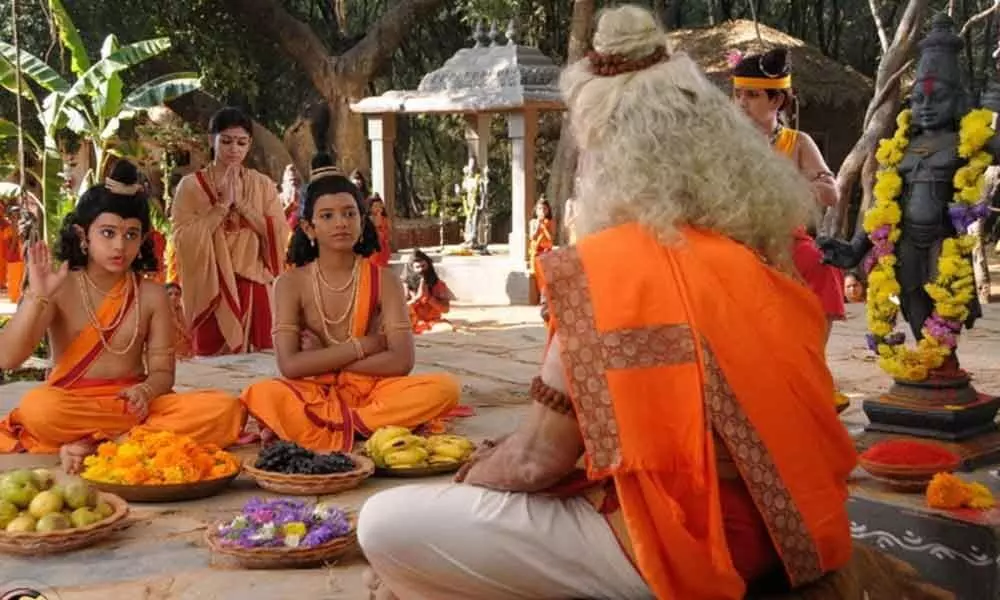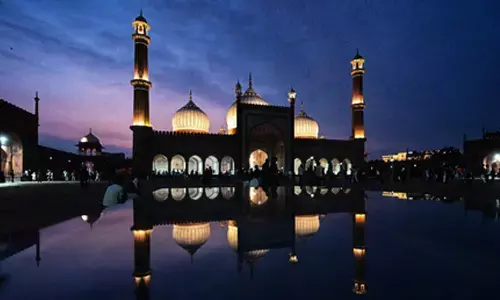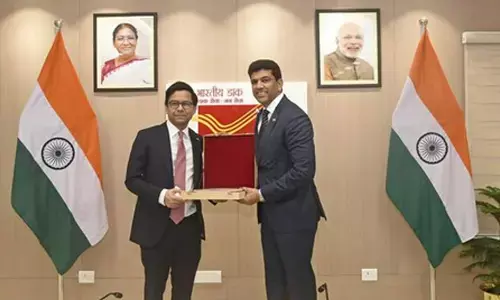VALMIKI RAMAYANA: Lava Kusa sing the Ramayana

Valmiki composes twenty-four thousand stanzas and teaches them to Lava and Kusha, the sons of Rama and Sita. They both sing the ballad amidst sages and saints and win laurels. Rama on hearing that the boys are singing on the streets of Ayodhya, brings them to his palace, and summons all his brothers and ministers to listen to the ballad
The story of Raghu Rama, who is the incarnation of Lord Vishnu in human form is Ramayana. Reading Ramayana is nothing but serving Sri Rama himself. Reading Ramayana ensures wiping out all sins, providing virtue to those who desire to be virtuous, provides funds to those who have ambition to accumulate wealth and provides lust to those who have desire for lust. Valmiki starts telling the story of Rama right from his birth till his holy demise being empowered to do so by Lord Brahma.
Valmiki composes twenty-four thousand stanzas and teaches them to Lava and Kusha, the sons of Rama and Sita. They both sing the ballad amidst sages and saints and win laurels. Rama on hearing that the boys are singing on the streets of Ayodhya, brings them to his palace, and summons all his brothers and ministers to listen to the ballad. Rama himself is astonished as the ballad sung by these youngsters narrates the legend of Sita.
Ayodhya
In the Kosala country adjoining River Sarayu where all the people lived happily, there was a glorious city with well-devised royal highways called Ayodhya. The city was surrounded with gateways and archways. Ayodhya with its natural beauty in all aspects overtakes the famous Lakhimpur. The city can be compared with heavenly capital Amaravati. As the God manifested in the form of a human being there the city came to be known as Ayodhya. Wherever there is God Mahavishnu that itself is paradise and, in his service, there is Nirvana. Ayodhya was ruled by king Dasharatha, who belongs to the Ikshvakas dynasty and was supposed to be greatest of all his ancestry.
Ayodhya is encompassed with Vedic scholars who always worship fire. The Brahmins of Ayodhya were known for charity and they used to donate all their wealth as and when anybody asks for. None of them had any necessity to beg or borrow from anyone. Reciting of sacred theology, the Vedas, was their routine.
The Kshatriyas, evincing keen interest in the teachings of Brahmins were leading their lives and turned towards the Brahmans, the scholarly class, for intellectual and religious support. The trading class Vaisyas were supportive of king and helped in improving state's economy. The Sudras, the working class, while performing its own duties, was always working for the other castes. Totally distancing themselves from cheating, theft etc they were serving the Brahmins, Kshatriyas and Vaisyas and were concentrating on their hereditary professions.
The city of Ayodhya was well protected by the king from Ikshvakas dynasty, namely, Dasharatha. The ministers of king Dasharatha were intelligent, religious, virtuous, believers in justice, capable, fighters, valorous, noble, courageous and so on. They made the rule meaningful with their virtuous, skilful and efficient administration. Accompanied with such effective and good-natured ministers, the illustrious king Dasharatha ruled the earth. In fact, without any distinction everyone who lived in Ayodhya were good in every aspect. In the glorious city of Ayodhya all were exuberant and virtuous ones, and scholars, the learned ones, people were satisfied with their own riches, they had no greed, and they advocated truthfulness alone.
Dasharatha's Ashvamedha Yagam
King Dasharatha had three wives namely Kousalya, Sumitra and Kaikeyi. They were the daughters of king of Kosala, king of Magadha and king of Kekaya respectively. Despite having enormous wealth and everything at their doorstep, Dasharatha and his three wives did not have children. Any many rituals appeasing gods that they performed did not help in this regard.
One day he tells his ministers that he intends to perform an elaborate Vedic ritual, Ashvamedha Yagam, the horse sacrifice, as enshrined in the scriptures to beget children. He also elicits their opinion with a request to show him a way out. His proposal to perform Ashvamedha Yagam gets support from all including Sage Vasishta, royal priest.
Brahmin scholars along with Sage Vasishta and all other important personalities in their turn bless and honour king Dasharatha. And say that any activity undertaken by great, honest and candid persons like him would be successful; the ministers assure king Dasharatha that they would stand by him.
At this point of time minister Sumantra advises Dasharatha to invite sage Rushyasrung to fulfill his desire of having children. Sumantra details the importance of Sage Rushyasrung and beseeches the king to invite him to preside over the planned Vedic ritual, for that Sage's entry into any kingdom is auspicious for that land and people.
Dasharatha invites Rushyasrung
Dasharatha on hearing the advice given by his minister Sumantra in turn briefs his royal teacher and chief priest Vasishta about it. Vasishta agrees to what Sumantra says and suggests Dasharatha to heed to his advice. Dasharatha goes to Rushyasrung and requests him to come to Ayodhya and after his acceptance to come along with his wife Shanta, makes all arrangements.
Dasharatha enters Ayodhya along with Rushyasrung
Citizens of Ayodhya on knowing the arrival of their king Dasharatha along with sage Rushyasrung, became jubilant and in accordance with the commands of king decorate the city gorgeously. On reaching his inner palace chambers king Dasharatha worships Rushyasrung and makes him comfortable. He is also very happy as his prayers are now becoming a reality and he would soon have children. For the excellent attention Rushyasrung receives, he is immensely pleased.








